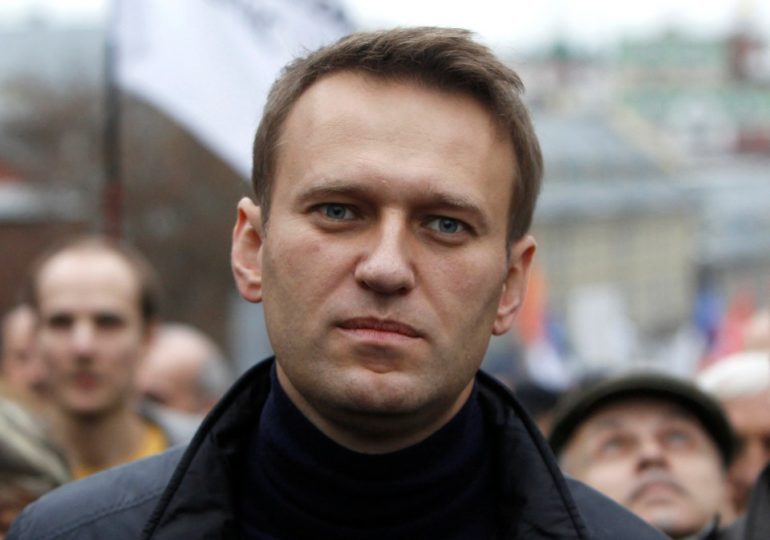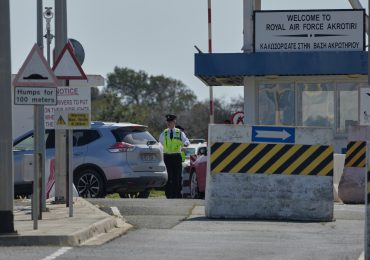INMATES at the hellhole ‘Polar Wolf’ prison have spoken about a “mysterious commotion” the night before Alexei Navalny died.
Prisoners at the brutal Siberian jail spoke of an “out-of-the-blue” search of the cells, a tight lockdown and the noise of cars the night before the death of the Russian opposition leader was reported.
Russian authorities claimed the opposition leader died of sudden death syndrome
ReutersAn inmate of the Arctic jail says the was a lot of “commotion” the night before Navalny’s death[/caption]
APNavalny with his wife Yulia – he is said to have sent her a Valentine’s Day message before his death[/caption]
The outspoken Putin critic, 47, collapsed and died in jail on Friday with Russian authorities later stating his death was caused by “sudden death syndrome” amid widespread claims he was “murdered” by the Russian despot.
It was later alleged his body had been found covered in bruises, fuelling the theory he was killed with a “hallmark of the KGB” method – one punch to the heart after being forced to spend hours in freezing temperatures.
An inmate at the brutal jail described the unusual circumstances of the night before Navalny’s death and explained why he is certain the Putin enemy had died much earlier than it was reported by Russia.
He told Novaya Europe: “It all started when they really sped up our evening search. This usually happens on holidays when the guards are in a hurry to go and celebrate, but yesterday wasn’t a holiday.
“Then they locked us up, forbade any movement between barracks, and tightened security.
“We heard cars drive onto the prison grounds late at night but couldn’t see through our cell windows what they were.”
He said the guards then proceeded to conduct an extensive search of the prisoners’ cells the next morning seizing items they had previously turned a blind eye to – such as phones, deck cards and even coil heaters.
There was no ambulance in the colony that morning — it only appeared after the news of Navalny’s death became known
The prisoners were made to understand that an outside inspection was coming up – however, he notes that both guards and the inmates would normally be informed about such inspection a month in advance.
The following morning at 10am, the news about Navalny’s death started to spread around the prison.
Navalny’s time of death was reported as 2.17pm local time on Friday but the source’s evidence suggests it had happened the night before.
The inmate continued: “The punishment cell area that [Navalny] had been placed in is located somewhat to the side of the barracks, but we would have seen an ambulance drive up to it.
“But there was no ambulance in the colony that morning — it only appeared after the news of Navalny’s death became known.
“So I think he died a lot earlier than was stated officially — the night before, most likely. Why else would they completely lock us up and search us so thoroughly?”
The source explains that both the warden and the prison’s head of operations appeared distraught in the wake of the news being announced.
He said: “In the afternoon, several cars drove up to the administration unit. One was from the IK-18 prison, one from Salekhard, and a few others from Labytnangi, apparently.
“I think they wanted to coordinate their stories before the inspectors arrived.”
The inmate’s testimony comes after footage appears to show Navalny’s body being smuggled out of prison overnight.
His grieving family has still not been allowed to see his body and no official autopsy has been performed.
A paramedic who saw the body said it was covered in bruises and had consistent marks that could show he was “murdered” after it was suggested he suffered a seizure in jail.
“The person is convulsing, they are trying to restrain him, but the convulsions can be very strong, and that’s why bruises appear.”
There were also signs that jail medics had tried to resuscitate Navalny, because there were signs of “chest compressions”.
Navalny, Putin’s main critic in Russia, was serving a 19-year prison term at the IK-3 Arctic prison colony following a sham trial.
The activist was first picked up by Vlad’s brutal police in 2021 after returning to Russia following an assassination attempt.
Navalny also went missing from a hellish Russian jail last year – and his supporters warned at the time that he could be executed.
He was later found in one of the toughest prisons in the country in Siberia – known as “the Polar Wolf” colony.
The death of Putin’s critic Navalny was reported on FridayAP
ReutersNavalny was serving a 19-year sentence on extremism charges at the IK-3 Arctic prison colony[/caption]
AFPThe 47-year-old’ died ‘s body was said to be covered in bruises[/caption]
Life of Alexei Navalny
PUTIN’S best known opponent Alexei Navalny, 47, has died in prison.
Here is a timeline that took the leader of the opposition from the face of freedom in Russia and the Kremlin’s biggest foe to a hellhole Siberian prison and onto an early grave.
June 4, 1976 — Navalny is born in a western part of the Moscow region
1997 — Graduates from Russia’s RUDN university, where he majored in law
2004 — Forms a movement against rampant over-development in Moscow
2008 — Gains notoriety for calling out corruption in state-run corporation
December 2011 — Participates in mass protests sparked by reports of widespread rigging of Russia’s election, and is arrested and jailed for 15 days for “defying a government official”
March 2012 – Further mass protests break out and Navalny accuses key Kremlin cronies of corruption
July 2012 — Russia’s Investigative Committee charges Navalny with embezzlement. He rejects the claims and says they are politically motivated
2013 — Navalny runs for mayor in Moscow
July 2013 — A court in Kirov convicts Navalny of embezzlement in the Kirovles case, sentencing him to five years in prison – he appeals and is allowed to continue campaign
September 2013 — Official results show Navalny finishes second in the mayor’s race
February 2014 — Navalny is placed under house arrest
December 2014 — Navalny and his brother, Oleg, are found guilty of fraud
February 2016 — The European Court of Human Rights rules that Russia violated Navalny’s right to a fair trial
November 2016 — Russia’s Supreme Court overturns Navalny’s sentence
December 2016 — Navalny announces he will run in Russia’s 2018 presidential election
February 2017 — The Kirov court retries Navalny and upholds his five-year suspended sentence from 2013
April 2017 – Survives an assassination attempt he blames on Kremlin
December 2017 — Russia’s Central Electoral Commission bars him from running for president
August, 2020 – Navalny falls into a coma on a flight and his team suspects he was poisoned. German authorities confirm he was poisoned with a Soviet-era nerve agent.
Jan 2021 — After five months in Germany, Navalny is arrested upon his return to Russia
Feb 2021 — A Moscow court orders Navalny to serve 2 ½ years in prison
June 2021 — A Moscow court shuts down Navalny’s Foundation for Fighting Corruption and his extended political network
Feb 2022 — Russia invades Ukraine
March 2022 — Navalny is sentenced to an additional nine-year term for embezzlement and contempt of court
2023 — Over 400 Russian doctors sign an open letter to Putin, urging an end to what it calls abuse of Navalny, following reports that he was denied basic medication & suffering from slow poisoning
April, 2023 — Navalny from inside prison says he was facing new extremism and terrorism charges that could keep him behind bars for the rest of his life
Aug 2023 – A court in Russia extends Navalny’s prison sentence by 19 years
Dec 2023 – He disappears from his prison as his team fear he could be assassination. He then reappears weeks later in one of Siberia’s toughest prisons – the ‘Polar Wolf’ colony










